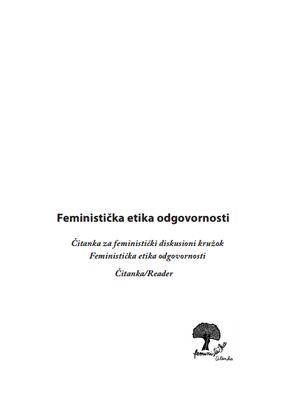

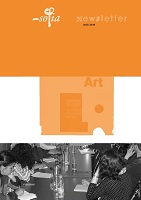
Keywords: Centre for Advanced Study; CAS; CAS-Sofia; Newsletter; CAS Newsletter; CAS Newsletter 2015-2016
Articles, pictures and interviews can be reprinted only with the consent of Centre for Advanced Study Sofia (CAS - Sofia). Any citations should be duly acknowledged.
More...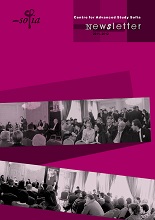
Keywords: Centre for Advanced Study; CAS; CAS-Sofia; Newsletter; CAS Newsletter; CAS Newsletter 2011-2012
Articles, pictures and interviews can be reprinted only with the consent of Centre for Advanced Study Sofia (CAS - Sofia). Any citations should be duly acknowledged.
More...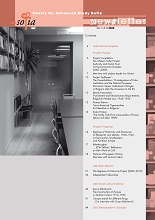
Keywords: Centre for Advanced Study; CAS; CAS-Sofia; Newsletter; CAS Newsletter; CAS Newsletter 2009
Articles, pictures and interviews can be reprinted only with the consent of Centre for Advanced Study Sofia (CAS - Sofia). Any citations should be duly acknowledged.
More...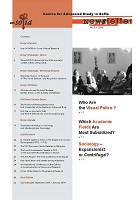
Keywords: Centre for Advanced Study; CAS; CAS-Sofia; Newsletter; CAS Newsletter; CAS Newsletter 2005
Articles, pictures and interviews can be reprinted only with the consent of Centre for Advanced Study Sofia (CAS - Sofia). Any citations should be duly acknowledged.
More...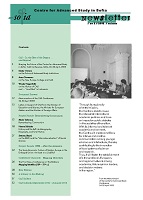
Keywords: Centre for Advanced Study; CAS; CAS-Sofia; Newsletter; CAS Newsletter; CAS Newsletter 2002
Articles, pictures and interviews can be reprinted only with the consent of Centre for Advanced Study Sofia (CAS - Sofia). Any citations should be duly acknowledged.
More...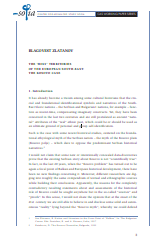
The article seeks to revise the current mainstream interpretation of the relations between the Balkans and the West as it has emerged from the mirror reading of the Balkanism paradigm. It interrogates the grounds for interpreting the Western discourse about the Balkans in terms of Said’s Orientalism and the Balkan visions of Europe in terms of the hegemonic Western discourse.
More...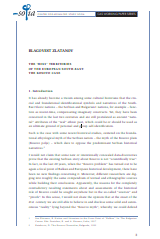
The aim of this paper is to identify the incentives of the institutional trust on the regional levels of two neighboring areas along the Danube. The approach is a comparative one; two border zones from northern Bulgaria and southern Romania, having a certain similarity as regards historical past and social organization, are juxtaposed. The research took place both at the level of these circumscribed geographical areas and in particular localities. The hypothesis was that the networks of social trust have a strong infl uence upon the civic and political commitments. By the term ‘commitment’ I mean the social reliability for roles and position takings in the frame of the local institutions (mayoralty, political parties, civic and cultural associations).
More...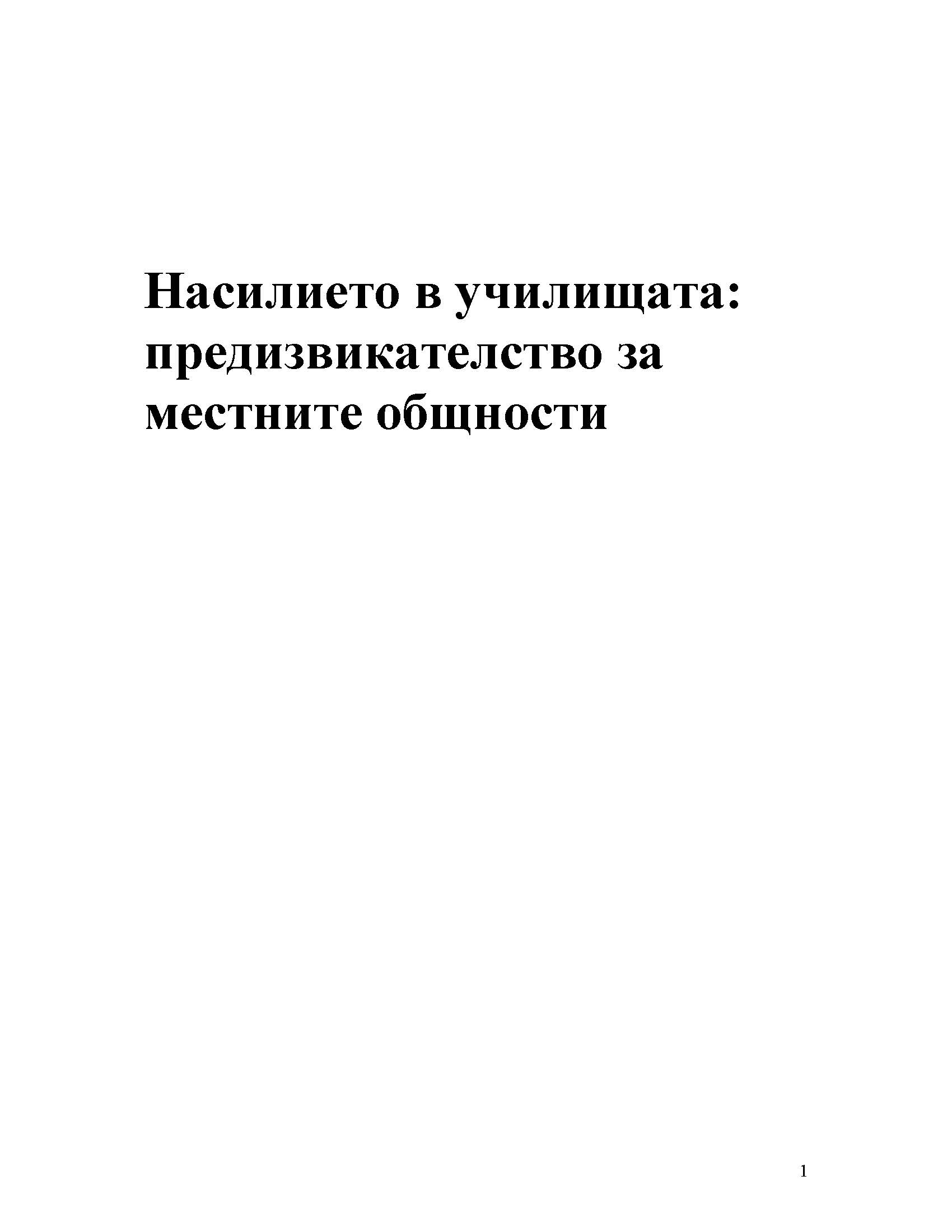
All Europeans feel affected by the violence and its consequences. Everyday personal security is exposed to threats in different contexts and circumstances: at home, at school, at work, during sporting events and on the street. While violence and the fear of violence affect the everyday life of each, some groups - women, children and adults, as well as immigrants, refugees and some ethnic groups - are particularly vulnerable targets for the abusers.
More...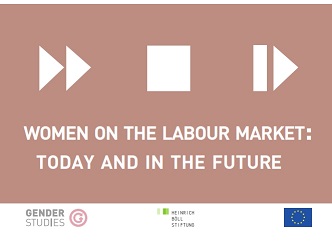
Keywords: Women; labour market; gender studies; gender mainstream; inequality; equal opportunities; gender stereotypes; motherhood; childcare; maternity leave; career break; developing career; female scientists; workplace; discrimination; women’s human rights;
Dear readers, We are pleased to bring to your attention Women on labour market: today and in the future, a book, which is one of the outcomes of the project Fit for Gender Mainstreaming - Gender-Sensitive Transcending of Borders between East and West. Based on cross-border qualification initiatives for multipliers and public events in all countries participating in the “East-West Dialogue”, the goal of the project is to advance gender mainstreaming strategies on a local level and enhance exchange of experiences and qualifications. The publication follows up the international conference Future of Women on the Labour Market, which took place under the auspices of Kateřina Jacques, a Member of Parliament, in Prague in October 2007. Our goal is to assess situation of women on the labour market, refer to persisting inequalities and inspire discussion about the future. We are aware of the fact that gender equality policies need a thorough evaluation to prevent biased application, which may lead to cementing gender stereotypes instead of disrupting them. Our texts address not only decision-makers, but they also represent a call for solidarity between women, since its lack often stands for a barrier in achieving equality. Thus, we decided to focus some of our current activities especially on women.
More...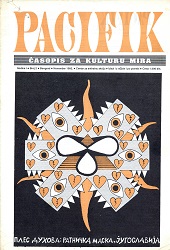
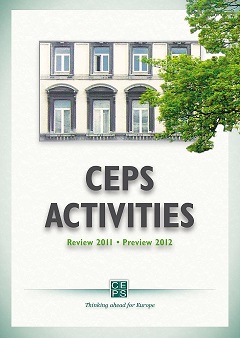
Keywords: Financial crisis; Euro crisis; Economic and Monetary Union; fiscal policy; macroeconomic policy; social policy; energy; climate change; environmental policy; economic development;
The prevailing financial or euro crisis is a reflection of inadequate fiscal policies in combination with a lack of competitiveness in several member countries of the eurozone. Whatever its causes, however, it has exposed fundamental weaknesses in the design of EMU as well as insufficient implementation of the rules governing the euro area. After all, EMU stands for Economic and Monetary Union. These deficiencies had been signalled earlier in the 1990s, but they have been ignored since then by many politicians and financial markets as well. At this moment, it is still unclear whether the euro-area members are able and willing to resolve this crisis by taking the necessary and far-reaching decisions towards a much higher degree of integration. Such moves would go beyond a ’fiscal union’ and would necessarily cover essential elements of macroeconomic policies as well.
More...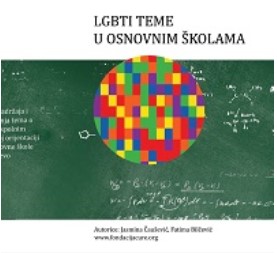
Keywords: LGBTQ; Elementary schools; Research topics in schools; Gender and sex identity; School literature; Bosnia and Herzegovina;
Analiza koja je pred Vama predstavlja nastavak rada vezanog za analizu školskih udžbenika na kojem Fondacija CURE radi već duže vrijeme. Naš rad se konkretno nadovezuje na analizu LGBTI sadržaja u udžbenicima za gimnazije i srednje medicinske škole, pod nazivom „O čemu šutimo kada šutimo o pravima LGBTI osoba u udžbenicima“, autorice Lamije Begagić, koja je izdata 2016. godine u saradnji Fondacije CURE, Državnog tajništva Sjedinjenih Američkih Država i Sarajevskog otvorenog centra. U ovoj analizi u fokusu je bilo 40 udžbenika koji su se koristili u osnovnim školama u Kantonu Sarajevo u školskoj 2016./2017. godini za predmete: BHS jezik i književnost (Čitanke), Moja okolina, Društvo, Biologija, Vjeronauk i Zdravi životni stilovi. Osim analize postojećeg stanja, doprinos analize ogleda se, konkretno, u prijedlozima za izmjene i dopune određenih sadržaja u korist raznovrsnijeg pristupa temama vezanim za različite rodne i spolne identitete i seksualne orijentacije. Tokom rada na prijedlozima za izmjene postojećih sadržaja, koje smo označile kao problematične, trudile smo se da ni u jednom trenutku ne izađemo iz planom i programom predviđenih tema u okviru nastavnih jedinica za osnovne škole u Federaciji Bosne i Hercegovine.
More...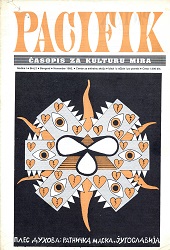
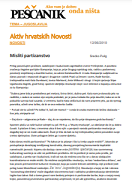
Keywords: Yugoslavia; 20th century; partizanship; socialism; communists; crimes; politics; dicatatorship; Croatia; identity;
1. „Misliti partizanstvo“ by Srećko Pulig; 2. „Komunistički zločini“ by Nikola Vukobratović; 3. „Sjećanje na partizane“ by Gal Kirn; 4. „Partizanska umjetnost“ by Srećko Pulig; 5. „Partizani danas“ by Gal Kirn; 6. „Za “ovu“ Jugoslaviju“ by Ivana Momčilović; 7. „Tigrovi od papira“ by Primož Krašovec
More...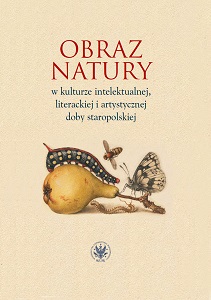
Keywords: modernity; Cartesianism; Socinianism; rationalism; Prometheism; subject; res cogitans; system of thought; superstition; miracle; natura naturans; rational grammar; Bacon; Descartes; Spinoza; Arnauld
The text discusses fundamental and profoundly distinctive changes which occurredin understanding the nature in Polish and European 17th century philosophy. Due tothe specifi c nature of these transformations and intellectual, separatist and culturalintentions of philosophers of that time, the main issue of this work is not nature itself,but the answer to the question how the epochal identity, signifi cance and distinctivenessof modern age can be justifi ed in exploring nature as the object of reasoning. The aimofthe text is to reconstruct the main metaphysical stance of modern age and its modernsystem of thought. The text consists of four parts. The fi rst part discusses twohistoriosophical ideas of the modern era: discontinuity of Mediterranean culture andmodernity as a radically new beginning. The key problem here is the philosophicalcognition and rejecting superstition as a form of thought based on someone else’s authority. The second part discusses several issues: the reconstruction of a modernsystem of thought based on the 17th century idea of subjectivity; the methods employedin rejecting sermocinal thinking and applying the realistic one; a new concept of knowledgeand truth; a new idea of nature – signifi cantly broaden – as the subject of thought.The attempts to justify a miracle as a natural phenomenon are particular cases discussedin the text. The third part explores the modern concept of natural language formulatedwithin rational grammar, which provides grounds for the epochal distinctiveness ofmodernity. The last part presents the modern breakthrough as a source of its owncrisis. Consequently, two basic, albeit concealed, Promethean implications and consequencesof modernity are identifi ed: undeifi cation of rationalised God and alienationof man in his own subjectivity.
More...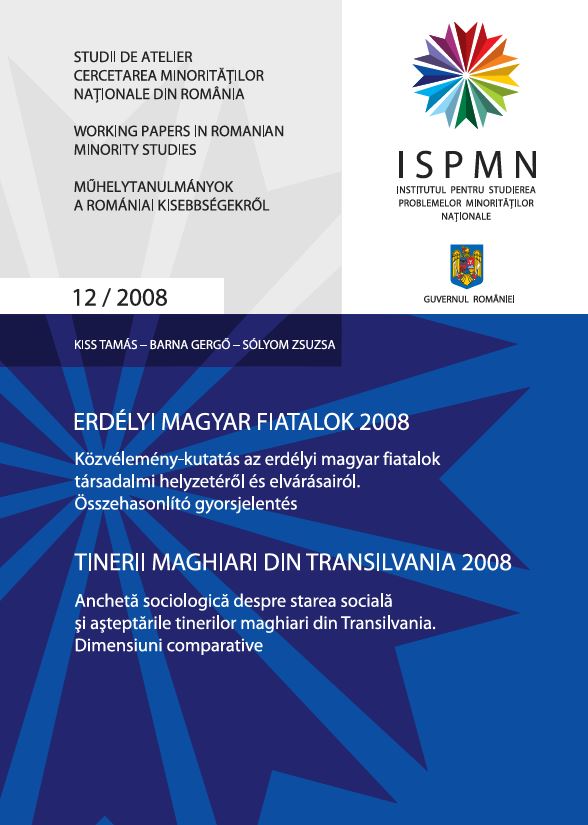
Keywords: Hungarians in Transylvania; Social status; Young people; Family and gender roles; media and computer usage; inter-ethnic relations;
„Csak abban a statisztikában hiszek, amit én hamisítottam” – így hangzik Winston Churchill egyik hires nyilatkozata. Sajnos Romániában nem ritka a közvélemény-kutatások közötti „háború”, ahol nem az a lényeg, hogy milyen eredményeket mutatnak az elemzések, hanem, hogy melyik intézménynek, pártnak, politikusnak nagyobb a támogatása, kit kell legitimálni. Az Országos I_úsági Hatóság rendszeresen végez vagy végeztet kutatásokat, hiszen meggyozodésünk, hogy pártszínezettol függetlenül minden kormány i úságpolitikájának az így szerzett eredményeken kell alapulnia. A romániai magyar atalok körében végzett kutatás az elso ilyen jellegu felmérés, amelyet román költségvetési nanszírozással készítettek. Az adatokat elemezve, összehasonlítva, számomra a legfontosabb következtetés, hogy mind a román, mind a magyar ataloknak pozitív a jövoképe. Nem önmagukban az egyes mutatók biztatóak, hanem a tendenciák. A zetéssel, munkahellyel, közérzettel, kivándorlással, oktatással, általános jóléttel kapcsolatos adatok az elmúlt években folyamatosan pozitív irányba mozdultak el. Ez a politikum számára mindenképpen reménykelto, de nem azt kell jelentenie, hogy elértünk egy folyamat végére. Tovább kell dolgozni a atalok számára biztosítandó lehetoségek bovítésén, és be kell vonni a atalok önszervezodéseit, hogy ezekbol a lehetoségekbol közösen eredményeket lehessen elérni.
More...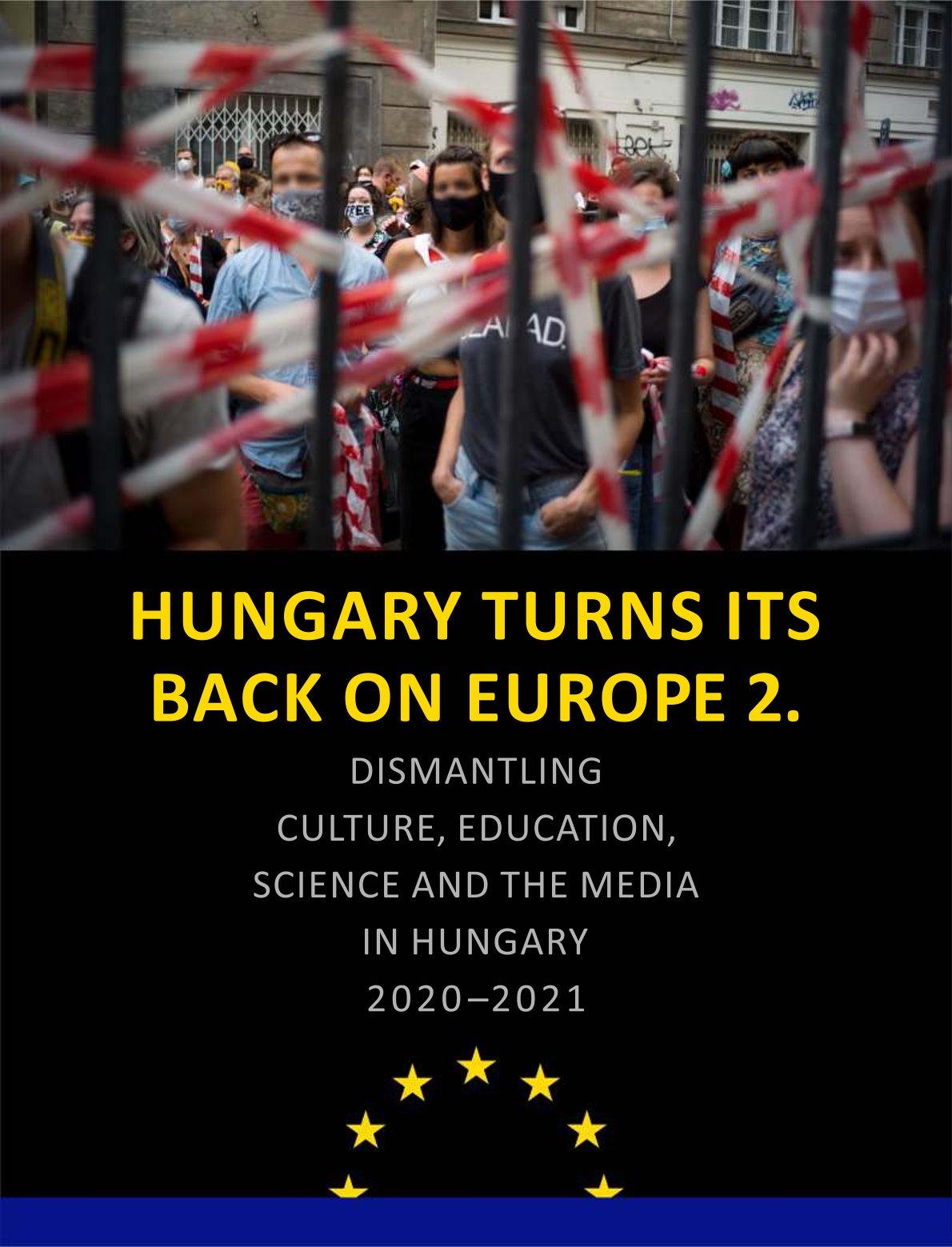
Keywords: culture; education; science; media; Hungary; Orbán-regime; government; corruption
With this volume, we continue our "Hungary turns its back on Europe" report, which was finalised in autumn 2019 and published in January 2020, "prepared by independent Hungarian intellectuals who wish to inform the Hungarian and international public as well as European institutions about the severe harm that the Orbán regime governing Hungary since 2010 has caused in the fields of education, science, culture, and the media." The reason for carrying on with our work is that, in the meanme, the situation in Hungary has exacerbated: the authoritarian features of the Orbán regime have been further strengthened, dismantling of the rule of law has continued, and the government's "cultural warfare" has moved up a gear and is increasingly destructive in the domain of culture. It is our common experience that Hungary, using European Union funds, has built an openly anti‐European, 21st century autocracy, which has taken the state captive, dismantled the checks and balances essential to the rule of law, turned democratic institutions into an empty shell, invaded the media and made corruption systemic.
More...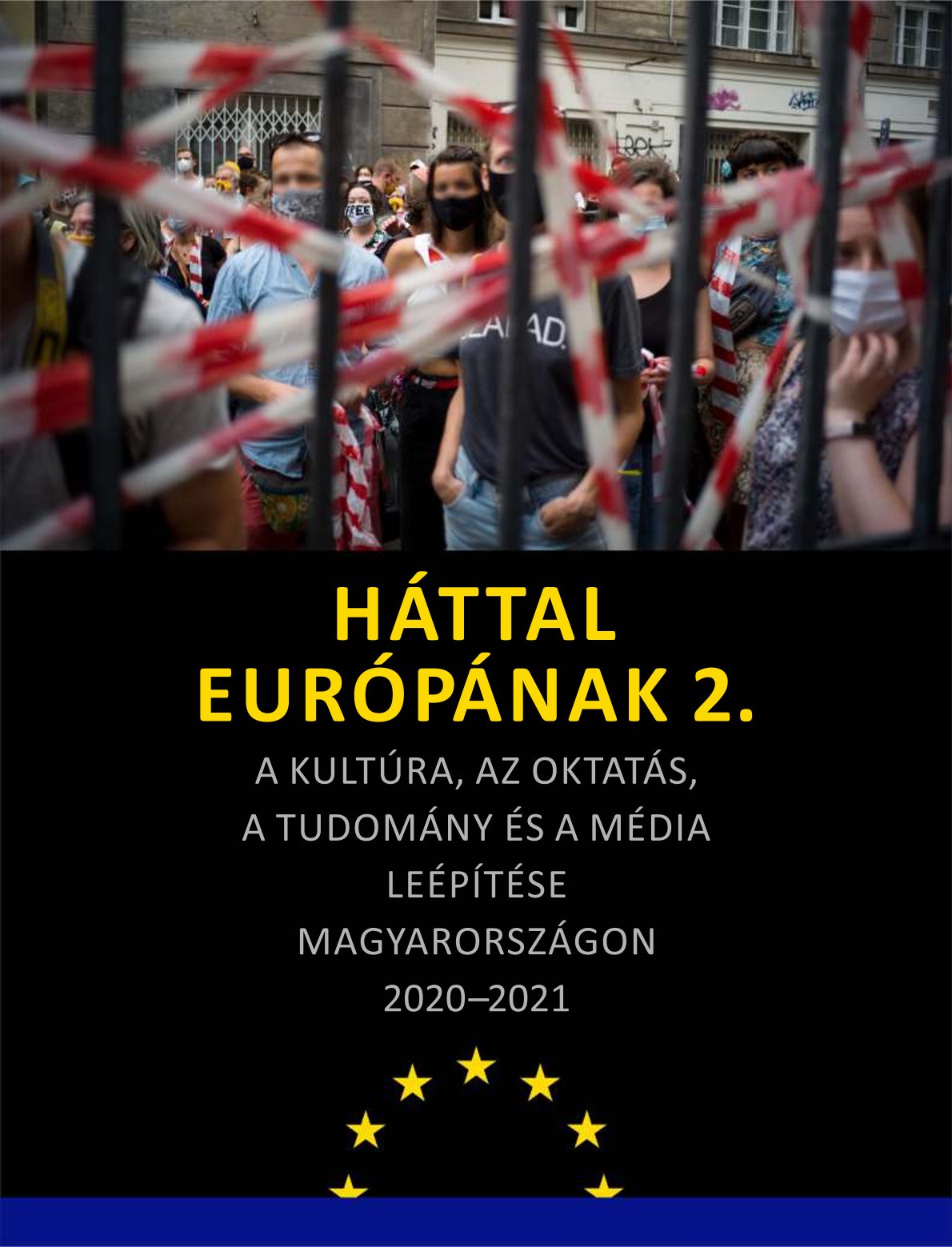
Keywords: culture; education; science; media; Hungary; Orbán-regime; government; corruption
With this volume, we continue our "Hungary turns its back on Europe" report, which was finalised in autumn 2019 and published in January 2020, "prepared by independent Hungarian intellectuals who wish to inform the Hungarian and international public as well as European institutions about the severe harm that the Orbán regime governing Hungary since 2010 has caused in the fields of education, science, culture, and the media." The reason for carrying on with our work is that, in the meantime, the situation in Hungary has exacerbated: the authoritarian features of the Orbán regime have been further strengthened, dismantling of the rule of law has continued, and the government's "cultural warfare" has moved up a gear and is increasingly destructive in the domain of culture. It is our common experience that Hungary, using European Union funds, has built an openly anti‐European, 21st century autocracy, which has taken the state captive, dismantled the checks and balances essential to the rule of law, turned democratic institutions into an empty shell, invaded the media and made corruption systemic.
More...